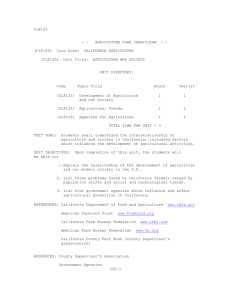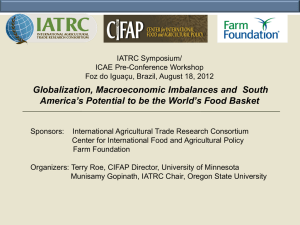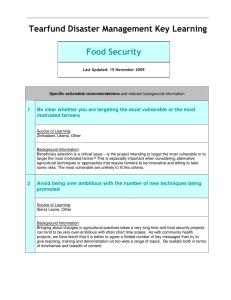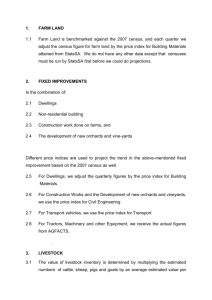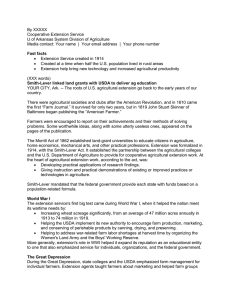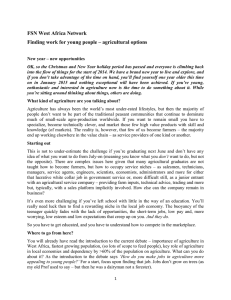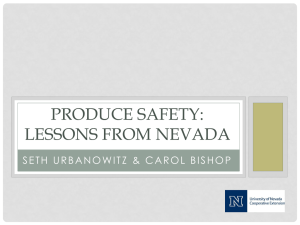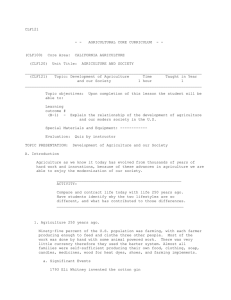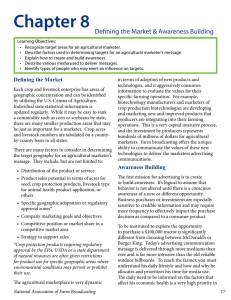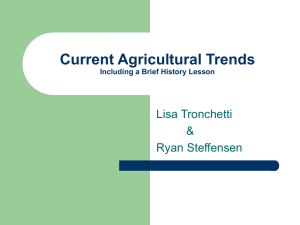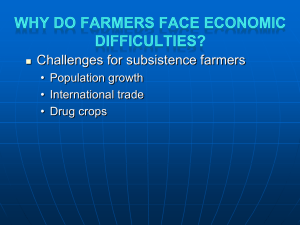Climate change compounds problems for stressed BC agriculture
advertisement
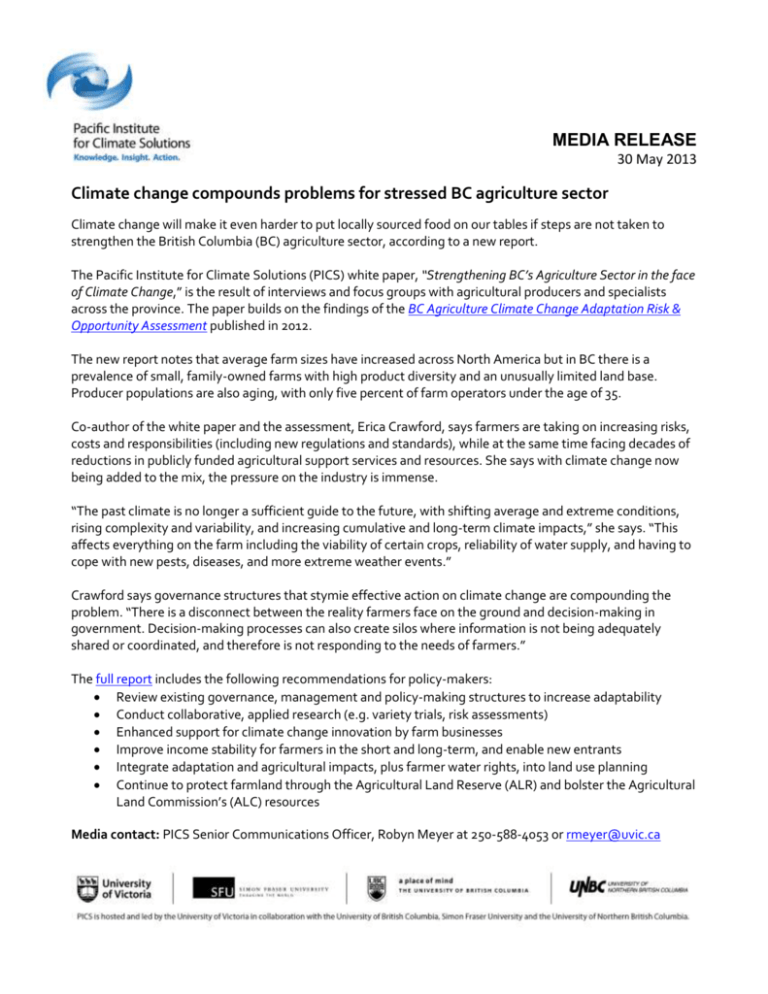
MEDIA RELEASE 30 May 2013 Climate change compounds problems for stressed BC agriculture sector Climate change will make it even harder to put locally sourced food on our tables if steps are not taken to strengthen the British Columbia (BC) agriculture sector, according to a new report. The Pacific Institute for Climate Solutions (PICS) white paper, “Strengthening BC’s Agriculture Sector in the face of Climate Change,” is the result of interviews and focus groups with agricultural producers and specialists across the province. The paper builds on the findings of the BC Agriculture Climate Change Adaptation Risk & Opportunity Assessment published in 2012. The new report notes that average farm sizes have increased across North America but in BC there is a prevalence of small, family-owned farms with high product diversity and an unusually limited land base. Producer populations are also aging, with only five percent of farm operators under the age of 35. Co-author of the white paper and the assessment, Erica Crawford, says farmers are taking on increasing risks, costs and responsibilities (including new regulations and standards), while at the same time facing decades of reductions in publicly funded agricultural support services and resources. She says with climate change now being added to the mix, the pressure on the industry is immense. “The past climate is no longer a sufficient guide to the future, with shifting average and extreme conditions, rising complexity and variability, and increasing cumulative and long-term climate impacts,” she says. “This affects everything on the farm including the viability of certain crops, reliability of water supply, and having to cope with new pests, diseases, and more extreme weather events.” Crawford says governance structures that stymie effective action on climate change are compounding the problem. “There is a disconnect between the reality farmers face on the ground and decision-making in government. Decision-making processes can also create silos where information is not being adequately shared or coordinated, and therefore is not responding to the needs of farmers.” The full report includes the following recommendations for policy-makers: Review existing governance, management and policy-making structures to increase adaptability Conduct collaborative, applied research (e.g. variety trials, risk assessments) Enhanced support for climate change innovation by farm businesses Improve income stability for farmers in the short and long-term, and enable new entrants Integrate adaptation and agricultural impacts, plus farmer water rights, into land use planning Continue to protect farmland through the Agricultural Land Reserve (ALR) and bolster the Agricultural Land Commission’s (ALC) resources Media contact: PICS Senior Communications Officer, Robyn Meyer at 250-588-4053 or rmeyer@uvic.ca
